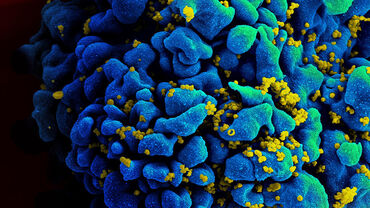Evidence brief: HIV testing in Europe and Central Asia - Monitoring implementation of the Dublin Declaration on Partnership to fight HIV/AIDS in Europe and Central Asia – 2021 progress report
This evidence brief summarises key issues and priorities for action in Europe and Central Asia on HIV testing. It is largely based on data collected in 2021 by the European Centre for Disease Prevention and Control (ECDC) to monitor implementation of the 2004 Dublin Declaration. The monitoring questionnaire was disseminated to the 53 countries that are part of the WHO European Region, plus Kosovo[1] and Liechtenstein via an online survey.
Executive Summary
- Approximately, one in five people living with HIV in Europe and Central Asia remain undiagnosed. Scaling up HIV testing is critical for the region to achieve the Sustainable Development Goal of ending the HIV/AIDS epidemic by 2030.
- Although most countries in Europe and Central Asia have a national testing guidance in place, some of these are more than five years old and others lack content on specific key populations, or recommendations on testing frequency or the implementation of specific methods to test for HIV.
- A range of HIV testing interventions are available, with more diverse options available since 2016. However, COVID-19 has impacted provision of HIV testing services in 2020.
- Legal and regulatory barriers to HIV testing persist in Europe and Central Asia. Countries should remove unnecessary restrictions on who can administer or receive an HIV test and review the costs for HIV testing; doing so will reduce mortality, morbidity and healthcare costs in the future, as new transmissions are averted.
- Data availability on testing volume and positivity in different settings, as well as on testing rates among key populations varies by country.
- Only a third of the countries in Europe and Central Asia recommend linkage to care within three months, which is the threshold for ‘prompt’ linkage to care.
[1] This designation is without prejudice to positions on status, and is in line with UNSCR 1244 and the ICJ Opinion on the Kosovo Declaration of Independence







